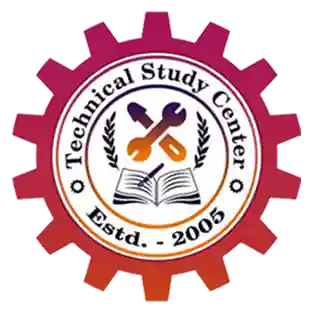Damodar Valley Corporation (DVC) is one of India’s oldest and most respected power utilities. It plays a vital role in thermal, hydro, and renewable energy production, along with water resource management. A job at DVC is not just a government position—it is an opportunity to contribute to India’s energy security and engineering excellence.
The DVC recruitment exam is highly competitive, requiring technical knowledge, problem-solving skills, and a deep understanding of power generation and grid systems. At Technical Study Center, we provide expert guidance and innovative techniques to help students not just clear the exam but excel in their field.
Understanding the DVC Recruitment Exam
DVC recruits engineers and professionals through a written exam followed by an interview. The selection process tests:
- Technical Knowledge – Focuses on power systems, electrical circuits, mechanical engineering, thermal operations, and water management.
- General Awareness & Logical Reasoning – Questions on current affairs, problem-solving, and analytical thinking.
- Interview Round – Evaluates technical expertise, communication skills, and decision-making ability.
Unlike many other exams, DVC’s recruitment process emphasizes real-world engineering applications. Understanding power failures, grid stability, and efficiency improvements can give candidates an edge.
How Technical Study Center Prepares You for DVC
Most candidates follow traditional exam preparation methods, but DVC requires a unique approach. At Technical Study Center, we focus on unconventional strategies to enhance learning.
1. Learn from Real Power Failures – The Reverse Engineering Method
Instead of only memorizing formulas, we teach students why power systems fail and how engineers solve them.
Example:
- What caused the 2020 power outage in Mumbai?
- How do engineers prevent blackouts in thermal power stations?
- What role does hydroelectric power play during electricity shortages?
By analyzing real incidents, students develop a problem-solving mindset, which is crucial for DVC.
2. Crack the Interview with Energy Sector Innovations
DVC interviews often include questions on improving power generation and grid stability. Many candidates give textbook answers, but we train students to think like power plant engineers.
Example:
- Instead of saying “Thermal plants generate power from coal,” a better response would be:
- “DVC can improve efficiency by using supercritical boilers, better cooling systems, and solar-wind hybrid models.”
This approach makes a candidate stand out in interviews.
3. The Grid Stability Challenge – Solving Real Power Management Problems
DVC manages electricity distribution across multiple states, which means grid stability is crucial. We use simulated grid failure scenarios to teach students how to balance power loads.
Example:
- What happens if one power plant shuts down unexpectedly?
- How does DVC handle sudden spikes in electricity demand?
- Why is hydroelectric backup important during peak hours?
By working on real-world case studies, students become better prepared for both the written exam and interview.
4. Time Management – The 40-40-20 Rule
DVC’s exam has a mix of technical and logical questions, which require careful time management. We use the 40-40-20 strategy:
- 40% time for technical problem-solving.
- 40% time for reasoning and general awareness.
- 20% time for revision and tricky questions.
Example:
If a power plant efficiency question is too complex, we teach students to skip it temporarily and return later, ensuring maximum score optimization.
